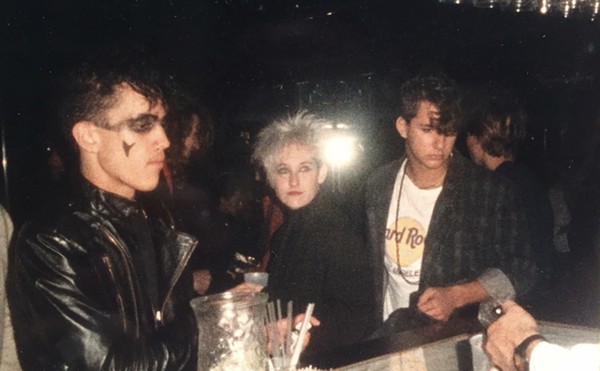In his book, América Latina: Marca registrada (Latin America, trademark), Chilean Sergio Marras interviews some of the most renowned writers from Latinoamérica about the name América Latina, a post-colonial French concoction that our ancestors embraced gladly: It was better to be “Latin” than black or Indian.
“In México, for example, anything indigenous has always been well-valued, but not in Argentina or Chile, but it varies depending on the place,” Marras told the Current via email. He adds: “Respect for anything black `in Latin America` has grown thanks to soccer and some artists ... and to the fact that being black in the USA gets more and more interesting every day.”
Peruvian Susana Baca – who won a Best Folk Album Latin Grammy in 2002 for Lamento Negro – is one of those artists who defends “Latin” American blackness and indigenous roots. Besides Afro-Peruvian music, Baca delves into anything from Uruguayan candombe to Argentine tango, adopting those styles in her intimate, unpretentious range. Last year, David Byrne’s Luaka Bop label released a six-song EP, edited down from Baca’s latest double CD, Mama. True to form, both the EP and the extended-release include traditional songs, some recorded for the first time, that highlight the African-tinged folk music of Baca’s childhood.
Baca spoke with the Current from her home in Chorrillos, Peru, about América Latina’s African heritage in society and music. The following interview is translated from Spanish.
Carlos Fuentes said that a more accurate, if impractical, name for Latin America would be Afro-indo-iberoamérica, because it includes the key African, indigenous, and Spanish elements of our roots.
You could say that, sometimes, our blackness is invisible. When I recorded Vestida de Vida `a 1991 collection of international Afro-Latin songs`, I asked about black music from Mexico and there was a huge discussion. The then-ambassador and others wouldn’t accept there were blacks in Mexico. And I couldn’t find anything from Argentina either, but now, both in Argentina and Mexico, you can find books and people who defend their black heritage. Even in my own country, when I was in school I was the best dancer in my class, but I wasn’t chosen to the school’s ballet, because the black and Indian girls were left out. That was the first marginalization blow I suffered. But more and more, finally, blacks and Andeans feel we are part of Peru.
South Americans pride ourselves of the fact that our blacks never had to go to separate bathrooms and never had to go to the back of the bus, but it’s a white-glove racism of sorts.
Exactly. It’s a much more subtle racism, not so institutionalized, but it’s still horrible. Four years ago, a very famous black artist `Chebo Ballumbrosio` wasn’t allowed in a nightclub in Miraflores `an exclusive Lima neighborhood`, and other places refuse the right to serve blacks or Andeans. Some people don’t denounce this out of shame, but Chebo made a big scandal of it.
Even though the Seis Poemas EP stands on its own, I would’ve preferred Luaka Bop to release the whole Mama album, as you intended it. Tell us about it.
Mama is a double album: One is dedicated to Chabuca Granda as my musical mother, with songs she never recorded, and the other one is dedicated to my biological mother. I’m particularly fond of the resbalosas we included. Mama is not available digitally, because I can’t even read an email! `laughs` But we sell it at our concerts.
Your voice has been described as a “quiet storm,” because you don’t need to do intricate vocal feats in order to impress anyone. How would you describe yourself as a singer?
A quiet storm? How beautiful! Chabuca’s voice used to be described as a torch. But I don’t have a great voice. My voice is short, little. Chabuca used to tell me, “You, Susanita, are a soul singer.” Not as explosive as, say, Aretha Franklin, but a little more contained.
You’re definitely soulful.
Soulful? That’s another beautiful word. And I used to think that it was difficult to express yourself beautifully in English... `laughs` But I do think I’m a good interpreter, because whoever comes to my shows always leaves with part of me in their souls. •
¡Susana Baca Canta!
$8-$10
7pm Sat, Sept 25
Our Lady of the Lake University’s Thiry Auditorium
411 SW 24th St
(210) 228-0201
















